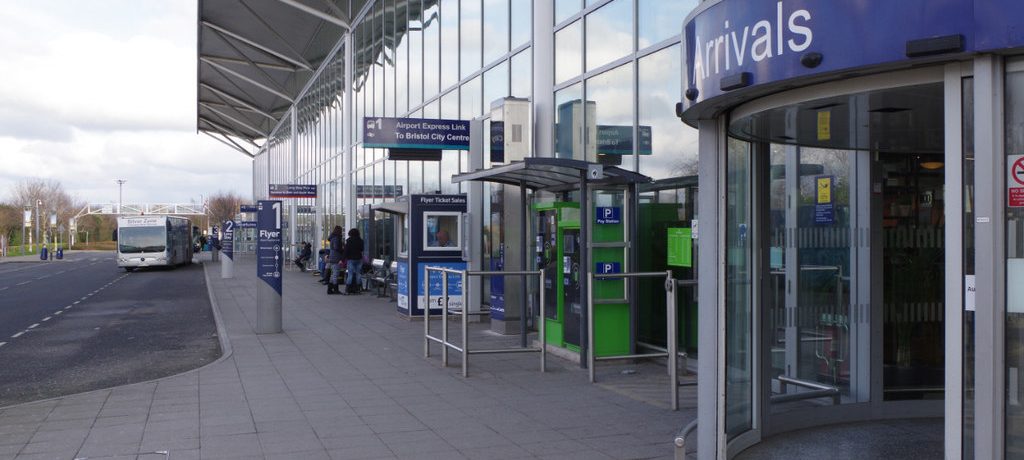Bristol Airport: What really went wrong
Here in the West of England, we are still reeling from the Planning Inspectors’ decision to overturn North Somerset Council’s rejection of a 20% expansion of Bristol Airport. Our Chair of Trustees, David Worskett, reflects on what really happened.
A regional decision with national implications
The Planning Inspectors’ set out in a 115 page Decision detailing why they are going against North Somerset’s Councils decision and approving major work to expand the airport’s capacity from the current limit of 10 million flights a year to 12 million. While we recover locally, we fear the national implications as this decision set a significant precedent and exposes huge weaknesses in how regional airport schemes are viewed and handled.
Local democracy threatened
Top of the list of worries come the implications for local democracy. All four Unitary Authorities in the region objected. So too did the Regional Mayor. There were some 11,000 individual objections and the largest coalition of “Green” groups we have ever seen here. The combined weight of these interests completely dwarfed the proponents of the scheme – predominately business groups and the Airport itself. All to no avail. Everyone who believes the rhetoric about the importance of local democracy has had a very nasty wake-up call.
Why and how did it all go so badly wrong?
There are really two strands of analysis:
- Planning
- The broader policy environment
Planning law trumps environmental commitments
Taking planning first, it is worth going back to the beginning and remembering that N. Somerset’s Planning Officers recommended approving the scheme. Councillors were courageous and principled and rejected that advice. However, Officers had all the objectors’ material, including some highly professional “expert” inputs such as the economic analysis we commissioned from the New Economics Foundation. Officers also knew the strength of local opposition. One can only assume, therefore, that they looked at the planning law and guidance and concluded that, following that and that alone, and despite their Council’s declaration of a “climate emergency”, they had to recommend approval. Sadly, they were right.
The lesson from this is that even with a number of long-term commitments to “net zero” baked into National Statute, until planning law and guidance is amended, clearly and specifically, to give far greater weight to climate change and “net zero” objectives, Officers and Planning Inspectors will find themselves compelled to follow law and guidance “as is” rather than as it should be if it is to be consistent with climate change goals. If they do anything else, at present they will be overturned in the Courts. All of this must be borne in mind in considering whether there is a realistic chance of getting anywhere with Judicial Review.
The broader policy environment
First is the problem of aviation policy and climate change. In essence, aviation policy remains outside the UK’s climate change commitments and protocols. The justification for this is that aviation is regulated and shaped at international level, through multilateral agreements which often involve labyrinthine negotiations over many years. (I know, I used to do them!). It would be an act of self-harm, the argument goes, for the UK to restrict its own aviation sector, and create friction with other foreign important aviation interests, by unilaterally imposing its own carbon neutral targets and operational constraints. This is not the place to debate the pros and cons of that argument, but the effect of it is to give airport expansion a “free pass” when it comes to its climate change responsibilities. It can get away with long lists of “mitigation” offers that simply do not go to the heart of the problem.
Second, we must look at two closely linked economic policies.
Airports policy is strongly in favour of the expansion of regional airports. This is seen as good for regional economies, and as a way of taking at least some pressure off the London airports, including reducing long-distance travel to them.
In parallel with this long-standing policy position, we now have the much more recent focus on “levelling-up”, which is probably the single most important manifesto commitment of the present government, with a Secretary of State whose title even now includes the term. The economic benefits of regional airport expansion play straight to the “levelling up” agenda. Bristol Airport promises 200 new jobs. The Prime Minister has talked of “green jobs” but no-one has a clue what a “green job” looks like, let alone how they might form a meaningful proportion of new employment which will for the most part inevitably be built on the existing industrial and commercial base.
Bristol Airport expansion is thus supported, for the present, by some of the Government’s most important economic policies. This needs to be kept in mind as we and others ponder whether and how we might get the Inspectors’ Decision “called in’ by the Secretary of State.
Will it come to fruition?
It is therefore a gloomy picture, However, schemes like these take a long time to come to fruition (look at Heathrow) and the WECA Mayor may well have a point when he openly doubts if it will ever happen. Governments, politics, policies can change, sometimes sharply and abruptly. They may do in this case.
Meanwhile I would not like to be a Bristol Airport senior executive, conscious in the still hours of the night that my company will not only be one of the most disliked amongst its own communities but also that every time a spade so much as touches the ground, someone will be watching to make sure all the conditions are being adhered to. It will be a management nightmare accompanied, I suspect, for some, by a gnawing sense of moral and ethical unease.
David Worskett MA (Oxon), FCIHT, FRSA
Chair, CPRE Avon and Bristol





